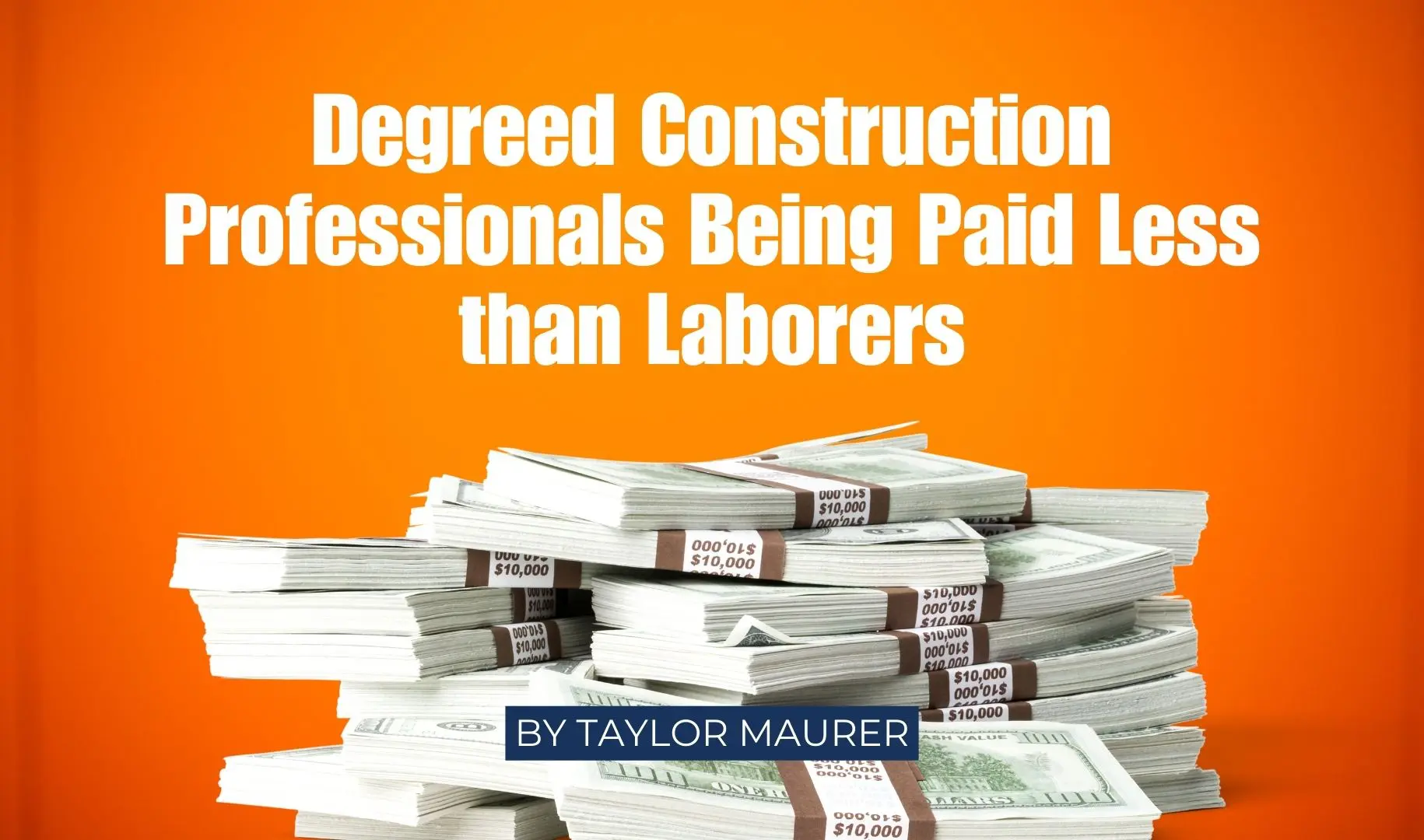
In the dynamic world of construction, the debate about fair compensation is always a hot topic, to the extent that we’ve heard complaining by degreed professionals about being paid less than their labor counterparts. We at HCRC conducted a poll asking, “Is it fair that entry-level degreed construction/engineering employees can be paid less than field laborers?” in order to address the complaints. The results were eye-opening: 69% of respondents believed it was fair for college-educated individuals to earn less, while 31% disagreed. Let’s dive into the reasoning behind these perspectives and what it implies for construction jobs and hiring practices.
The Value of Experienced Skilled Labor
One of the primary reasons behind the perceived fairness in pay disparity is the sheer value that experienced skilled laborers bring to a company. Unlike fresh graduates, seasoned field laborers possess practical skills honed over years of hands-on experience. This expertise is invaluable on-site, where the success of a project often hinges on the proficiency of those doing the actual work.
The Risks and Rewards of On-Site Work
Field laborers are not only the backbone of any construction project but also bear significant risks. Working on-site exposes them to hazards and potential injuries, which can have severe consequences. This risk factor is a crucial element driving up the demand and remuneration for skilled labor. As fewer individuals are willing to take on these high-risk roles, those who do are increasingly valuable to employers.
The Graduate’s Perspective
From the graduates’ viewpoint, the disparity can indeed be frustrating. After investing tens of thousands of dollars and several years into their education, entry-level salaries can feel disheartening. However, the current market dynamics dictate their pay more than their qualifications at the onset of their careers.
The Path to Higher Earnings
It’s important to note that for those college graduates who stick with the industry, their income potential over time is promising. As they gain experience and demonstrate their value, their salaries typically rise, often surpassing those of field laborers. Roles such as project manager, field engineer, and superintendent come with responsibilities and compensation that reflect the increased expertise and leadership skills required.
Market Demands and Construction Hiring
The construction industry is currently experiencing a high demand for skilled labor, affecting the hiring landscape. Companies are prioritizing workers who can immediately contribute to on-site projects without a steep learning curve. This market demand is a significant factor in the pay structure and hiring practices within the industry.
Career Growth in Construction
Construction jobs offer a unique trajectory where entry-level positions can lead to substantial career growth. For instance, starting as a field engineer can pave the way to becoming a project manager or superintendent. These roles are crucial in overseeing projects, ensuring safety, and meeting deadlines, which are highly valued and compensated accordingly.
Conclusion
The poll results from HCRC underscore a critical aspect of the construction industry: the balance between education and experience. While entry-level degreed employees may start with lower pay, the long-term career prospects remain robust. The initial disparity reflects the current market demands and the exceptional value that experienced skilled laborers bring to the table.
For those entering the construction field with a degree, the key is perseverance and gaining practical experience. As the industry evolves, so too will the opportunities for advancement and increased earnings. Understanding these dynamics is essential for both employers and employees as they navigate the complexities of construction hiring and compensation.
Stay tuned to HCRC for more insights and updates on the construction industry, hiring trends, and career advice.






